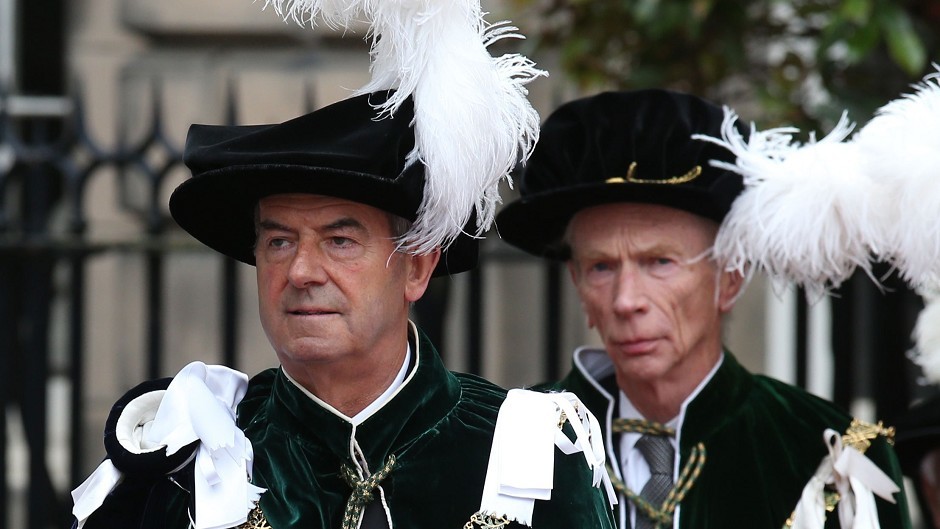
‘You don’t even have to be elected by an elite council? And your country is still considered a democracy?!’
Following is the text of my submission to the Smith Commission. I could have gone to great lengths studying the submissions of others and constructing something more solid, but let’s be honest – we are writing to a Lord about vague assurances made before a weak democratic decision. That’s not to say this is a futile exercise. Refusing to express your views to the Smith Commission is about as useful as refusing to vote at general elections. Yes, you can look on it as collaborating in a hopeless process, which it just might be, but right now I don’t see any better options.
So by playing along we can at least make our feelings felt, whether by reiterating to Lord Smith that we want nothing less than complete autonomy, or by voting for parties that aren’t Labour, Liberal Democrat, Conservative or UKIP at elections. Hence I urge you to submit your own demands, regardless of how you voted in the referendum. I have not met many people who are completely satisfied with their UK experience, so even if you still have faith in some form of union it seems safe to assume that you do want change. ‘Have your say’ here.
___________________
In his announcement following the referendum result David Cameron stated that “just as Scotland will vote separately in the Scottish Parliament on their issues of tax, spending and welfare, so too England, as well as Wales and Northern Ireland”. I completely agree, which is why I voted yes to independence. The Union of 1707 served Scotland & England well in an imperial age, to the detriment of many around the globe. Yet it was never designed to serve the needs of the majority of these nations’ citizens. Nothing haphazardly developed from feudal systems can serve a democracy. After all, what sort of democracy has more unelected legislators than elected one?
With 1,617,989 people in Scotland firmly rejecting the arrangements of the United Kingdom this cannot in any way be construed as a ringing endorsement of the UK. Many only voted to remain in the UK on the condition of radical change, but the Prime Minister’s decision to make a last minute Vow to the people of Scotland without consulting his own parliament is only the latest sign that the United Kingdom has no hope of survival. What we have now is a constitutional mess that is already making politics within the UK increasingly bitter and divisive; I don’t just mean between people in Scotland.
So until the day that this anarchic political system is scrapped my demand is that the leaders of Labour, the Conservatives, the Liberal Democrats do deliver on their promise, however vague. If they do not then the number of people in Scotland demanding independence can only continue to grow; and that means that any half-measure of ‘60% control of taxes’ is not enough. Neither is 100% control of tax good enough if spending decisions are so dependent on what the UK government decides, as with the NHS.
I agree with David Cameron that Scotland, England, Northern Ireland and Wales need 100% control of all resources, taxes and revenue raised within their shores, as those boundaries now stand. They also need 100% control of spending on welfare, education, etc. with the caveat is that each must contribute some amount to maintain a reduced UK parliament primarily concerned with foreign policy and defence, concerns about which I understand were the main reasons for many people deciding to maintain the Union. This obviously creates a multitude of new complications, which is why I wanted nothing less than complete independence.
As it is a majority did decide to continue with some form of union, yet the Union as we knew it is finished. What is required now is radical change and I do not believe that the Westminster establishment can ever deliver change of that magnitude for reasons of understandable self-interest. It would simply be counter-intuitive for the Labour, Conservative or Liberal Democrat parties to concede such a reduction of their centralised power, however damaging the long-term consequences of that instinct will be.
Therefore I challenge that establishment to prove me wrong and I demand that we dissolve the Union of 1707 in favour of a federal arrangement and a new constitution for the 21st century; negotiated not between parties at Westminster, but between representatives of all four nations. I can see no other way to bring the people of Scotland together as well as everyone within the UK. Hence I also demand that England, Wales & Northern Ireland each be allowed to hold independence referendums of their own.
To do otherwise would be counter-productive and although Scotland was the first to make this democratic decision it should not be alone in choosing the fate of Great Britain & Northern Ireland. Only if all four partners agree can any form of union be justified between four nations; yet until then the people of Scotland have been promised a far higher degree of control in their affairs and that cannot be delayed.

‘Radical change? What?’
